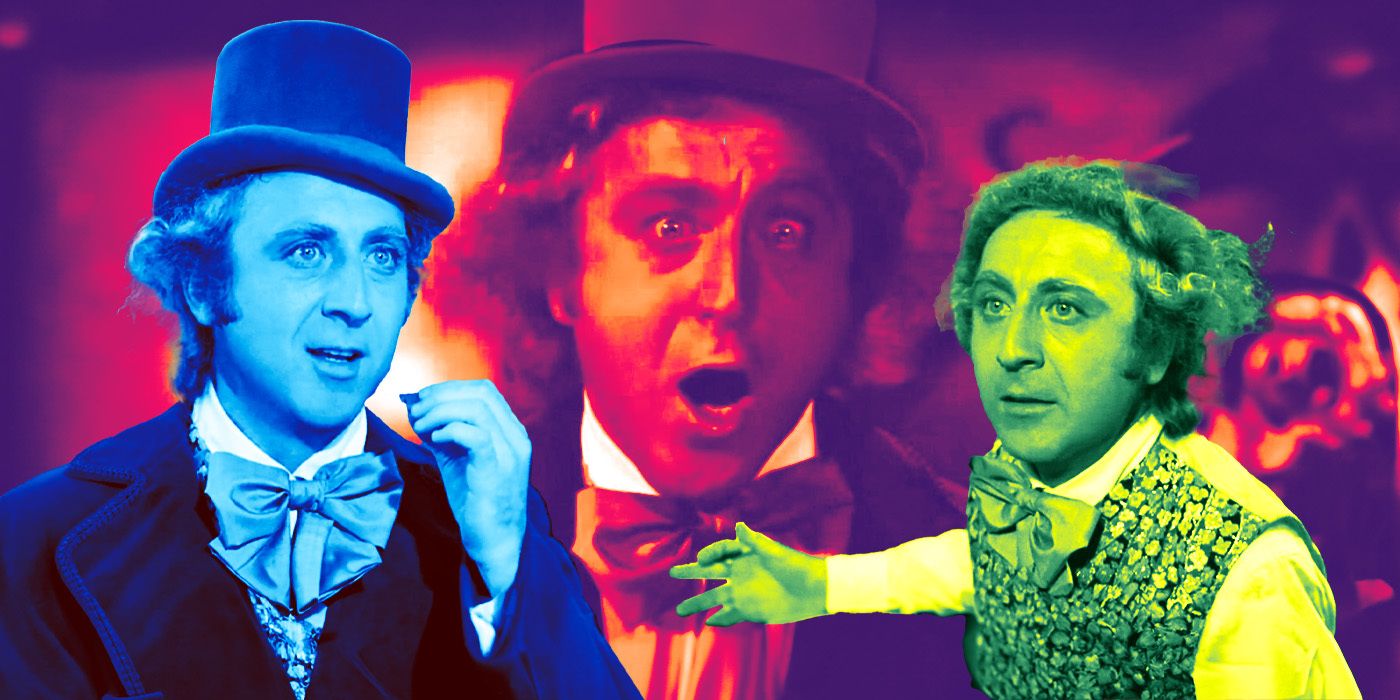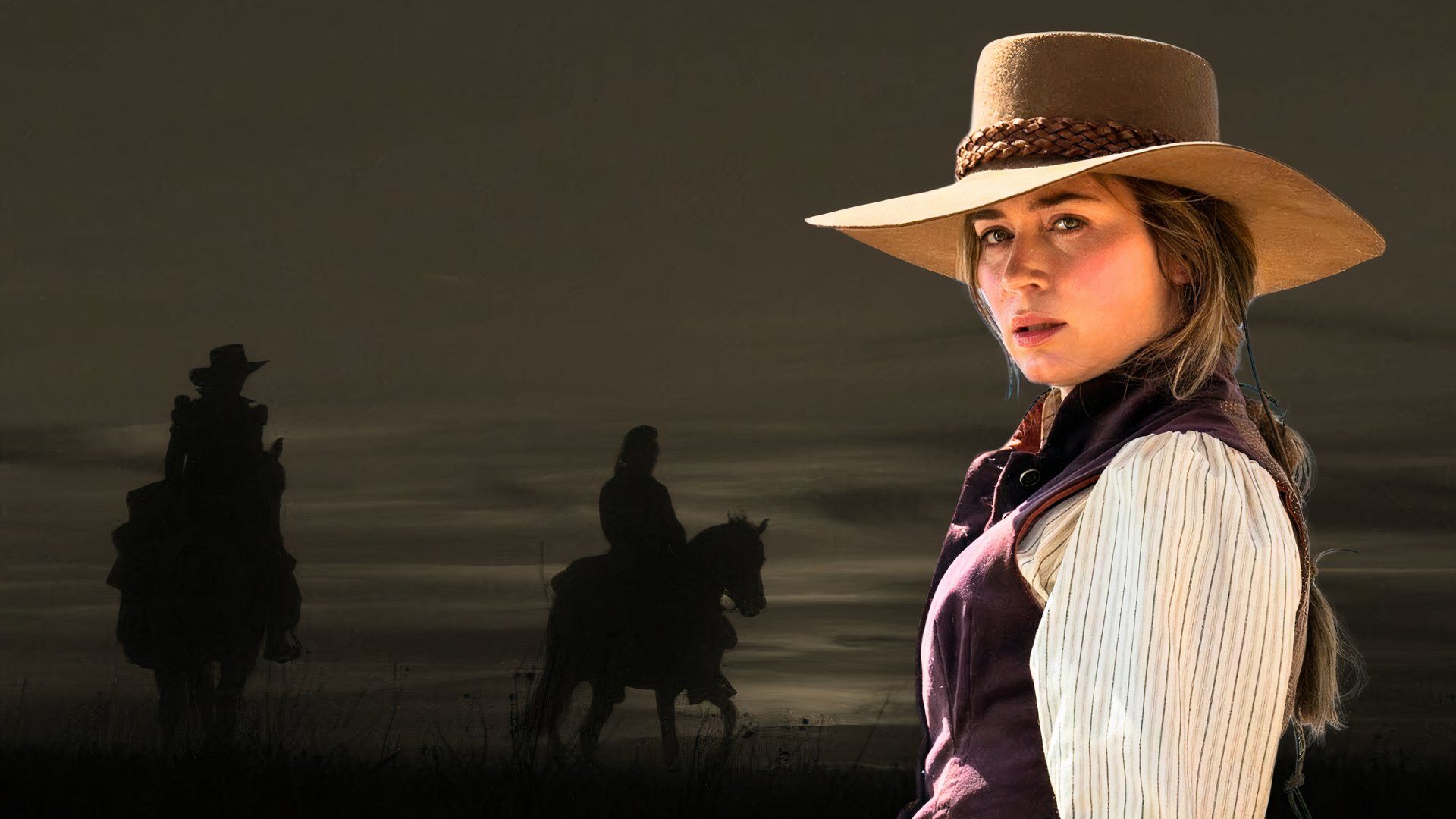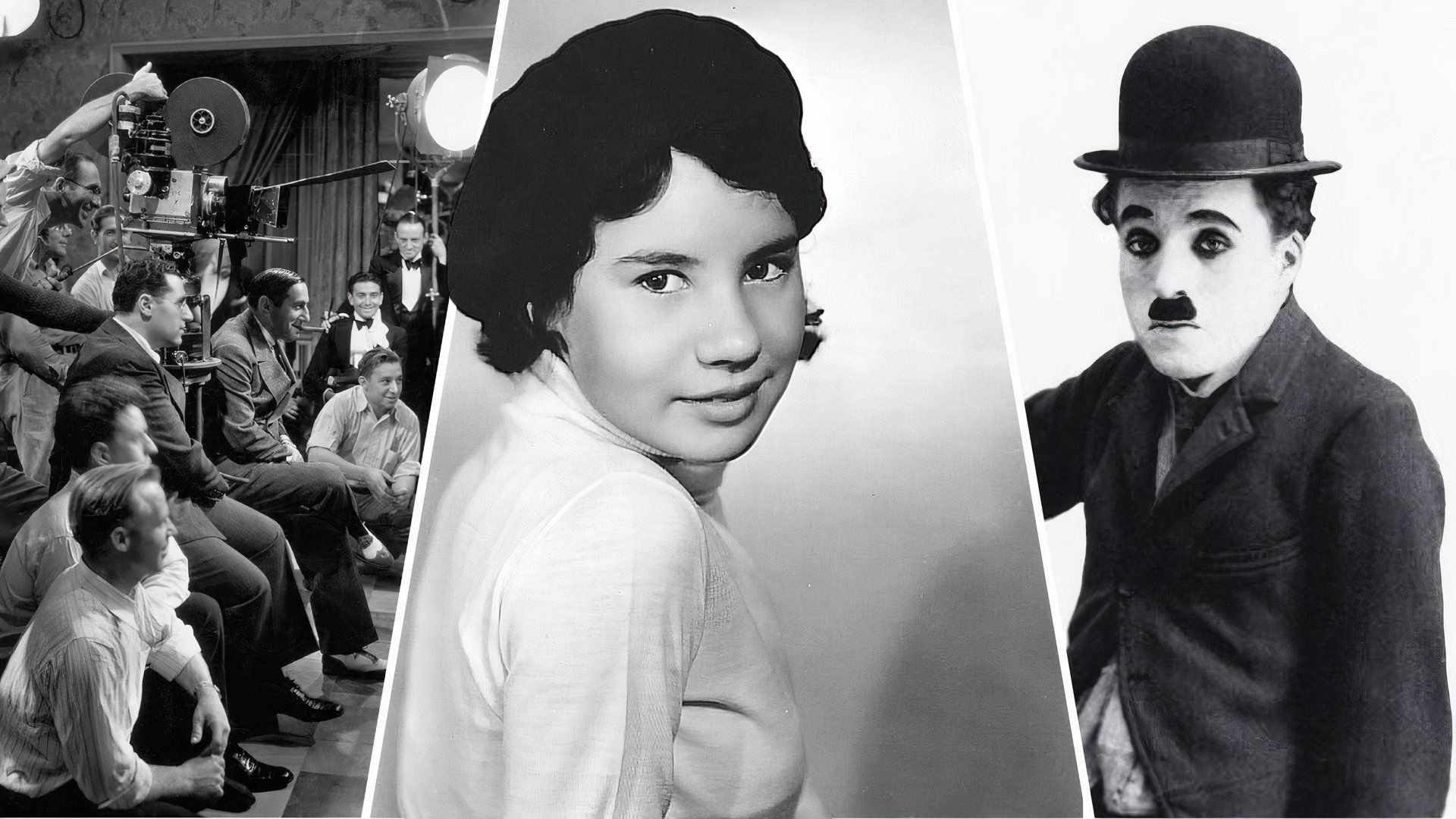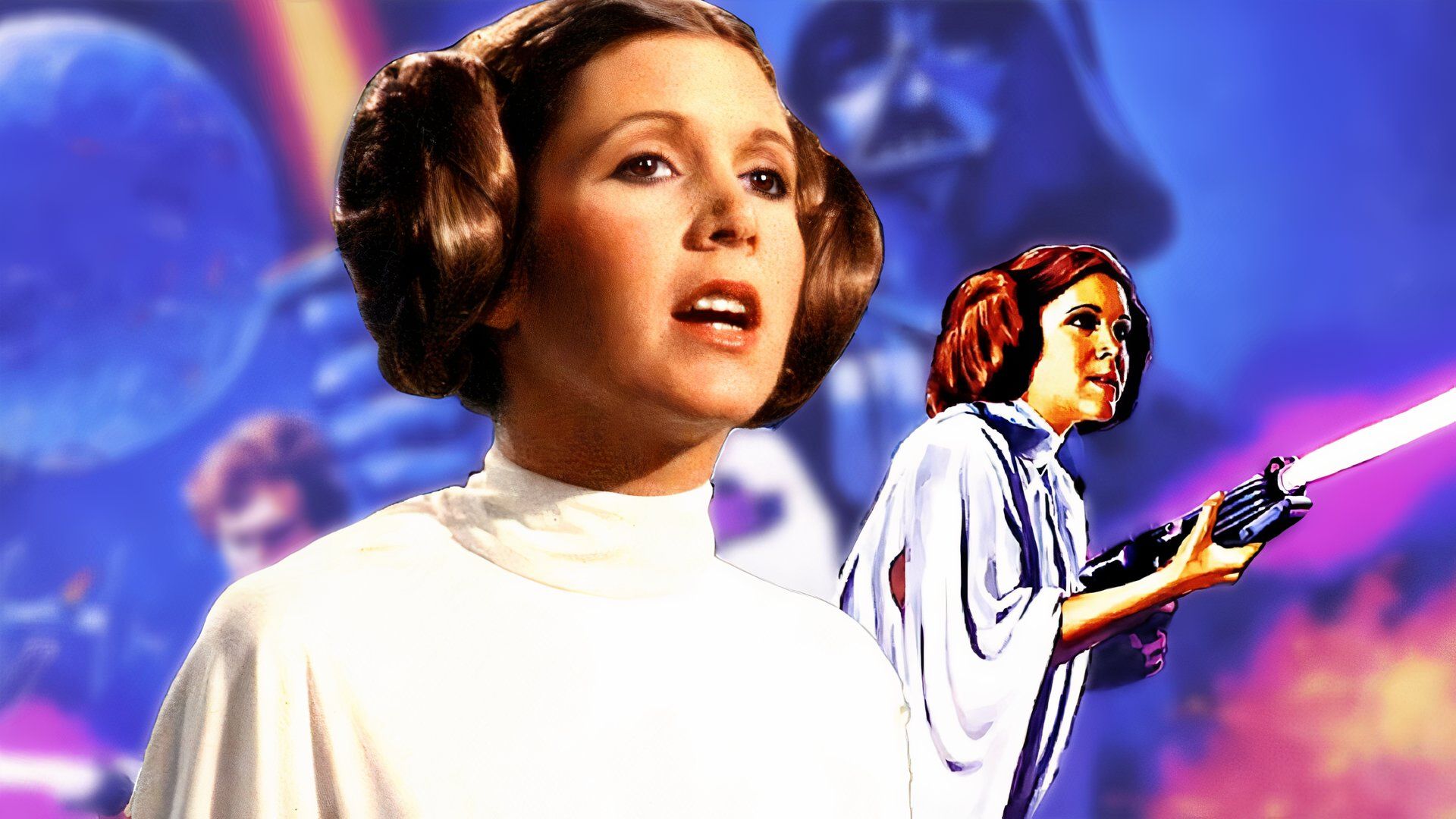More than 50 years before Timothée Chalamet donned the brown top hat and purple suit for Wonka, Gene Wilder was the first actor to become Roald Dahl’s wildly eccentric candymaker in the 1971 musical fantasy film Willy Wonka & the Chocolate Factory. While the movie was not a huge financial success, it originally opened to much fanfare and critical praise, particularly for its Academy Award-nominated musical score and for Wilder’s performance as Willy Wonka, which earned the actor a Golden Globe nomination. In retrospect, the movie enjoys even greater acclaim, and is considered one of the most beloved cult movies of all time.
Given the film’s impressive cinematic legacy, it’s hard to imagine that Gene Wilder — the man who practically made the entire film through his on-screen presence — was anything but well-received by those who worked closely on the film. Still, his performance caused a few behind-the-scenes speed bumps. Dahl himself was not a big fan of Wilder as Wonka, and his unpredictable acting methods took most of the cast by surprise. Here’s a brief look at Gene Wilder’s polarizing performance in Willy Wonka & the Chocolate Factory.
Gene Wilder Had One Condition Before Accepting the Role
From Fred Astaire to Peter Sellers, a number of actors were considered for the lead role in director Mel Stuart’s Willy Wonka film. But, then Gene Wilder came in to audition for Stuart and producer David Wolper. Wilder’s most famous role at the time was as hysterical accountant Leo Bloom in Mel Brooks’s 1967 musical comedy The Producers, which earned Wilder an Academy Award nomination for Best Supporting Actor. Almost immediately, Stuart and Wolper knew that they had found their man.
“His inflection was perfect. He had the sardonic, demonic edge that we were looking for,” said Stuart. “Perfect,” said Wolper in Producer, his autobiography, “does not begin to describe it. The role fit him tighter than Jacques Cousteau’s wetsuit.”
Stuart was quick to offer Wilder the role, but before accepting, Wilder had one condition, which he made clear in a subsequent letter to Stuart.
When I make my first entrance, I’d like to come out of the door carrying a cane and then walk toward the crowd with a limp. After the crowd sees Willy Wonka is a cripple, they all whisper to themselves and then become deathly quiet. As I walk toward them, my cane sinks into one of the cobblestones I’m walking on and stands straight up, by itself; but I keep on walking, until I realize that I no longer have my cane. I start to fall forward, and just before I hit the ground, I do a beautiful forward somersault and bounce back up, to great applause.
When Stuart asked Wilder’s reasoning for the stipulation, the actor simply responded, “From that time on, no one will know if I’m lying or telling the truth.” Stuart agreed to the entrance scene, and Wilder’s assertion would ultimately be proven right. The scene is so iconic that Timothée Chalamet tried to recreate it for Wonka. It didn’t work out, proving that some on-screen moments can never be duplicated.
Roald Dahl Hated Wilder’s Performance
Roald Dahl, whose novels and short stories spawned a number of movie adaptations over the years, wasn’t thrilled with Wilder being cast as Willy Wonka. The renowned British author’s original choice was Spike Milligan, whose success in sketch comedy with The Goon Show was a massive influence behind the creation of Monty Python’s Flying Circus. According to Donald Sturrock, Dahl’s longtime friend who wrote Storyteller: The Life of Roald Dahl, Wilder’s take on Wonka was too far removed from the distinctly British sense of peculiarity that defined the chocolate factory owner in Dahl’s 1964 novel Charlie and the Chocolate Factory.
“I think he felt Wonka was a very British eccentric,” Sturrock [said]. “Gene Wilder was rather too soft and didn’t have a sufficient edge. His voice is very light, and he’s got that rather cherubic, sweet face. I think [Roald] felt…there was something wrong with [Wonka’s] soul in the movie – it just wasn’t how he imagined the lines being spoken.”
As it turns out, it wasn’t just Wilder’s performance that Dahl had a problem with. He also considered the film’s deviations from the novel’s plot to be too gratuitous and was especially critical of the music, which he called, “saccharine, sappy, and sentimental.”
Wilder Improvised Many of His Lines
While most of Willy Wonka’s greatest lines in Willy Wonka & the Chocolate Factory were written into the original screenplay, Gene Wilder used his deft skills at improvisation to make some of the most iconic scenes even more iconic. Aside from Wonka’s aforementioned introduction (which surprised most of the cast), Wilder also improvised the scene where Charlie (Peter Ostrum) and Grandpa Joe (Jack Albertson) enter Wonka’s office to confront him. During rehearsal, Wilder was more subdued in his line delivery, but as soon as the camera rolled, he furiously launched into the “you lose, good day, sir!” rant in order to get a genuinely shocked reaction from Ostrum.
But, probably the most notable Wilder ad-lib of the film was his monologue during the nightmarish, psychedelic ride through the tunnel. In the documentary Pure Imagination, Stuart noted that no one else on set knew how Wilder was going to act in the scene.
“I had no idea what he was gonna do with that line,” Stuart said. “He got more and more excited, screaming. That, and when [he] screams at Charlie about how he couldn’t win the chocolate, he was just overpowering. He came up with the most wonderful moments in the film, portraying Wonka as half man, half saint, and that’s what makes the movie so good.”
Just as with the office scene, Wilder kept his line delivery a secret in order to elicit real fear from the child actors. In a 2016 interview with People, Denise Nickerson, who played Violet Beauregarde in the ’71 film, recalled being actually afraid during the tunnel scene.
“I was quite surprised with that, there was no acting involved,” Nickerson said. “My chin dropped, hit the ground and never came back up. I had not anticipated that, it was not in the script that he was going to go off on that tangent. I was completely speechless. I thought, nobody is going to come and see this movie this [Wonka character] is a nutjob. But good thing I’m not a producer, right?”
Though it may have been difficult for many of the Willy Wonka cast and crew to know where Wilder was going to go with his performance, Nickerson also acknowledged that he was “a kind, tender-hearted man.” His unpredictability as Wonka may have been somewhat polarizing, but it also led to the creation of one of the most beloved on-screen literary characters in movie history.



